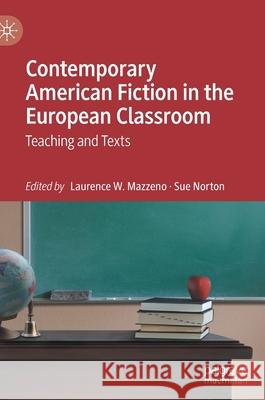Contemporary American Fiction in the European Classroom: Teaching and Texts » książka
topmenu
Contemporary American Fiction in the European Classroom: Teaching and Texts
ISBN-13: 9783030941659 / Angielski / Twarda / 2022 / 352 str.
Contemporary American Fiction in the European Classroom: Teaching and Texts
ISBN-13: 9783030941659 / Angielski / Twarda / 2022 / 352 str.
cena 522,07
(netto: 497,21 VAT: 5%)
Najniższa cena z 30 dni: 501,19
(netto: 497,21 VAT: 5%)
Najniższa cena z 30 dni: 501,19
Termin realizacji zamówienia:
ok. 16-18 dni roboczych.
ok. 16-18 dni roboczych.
Darmowa dostawa!
Kategorie:
Kategorie BISAC:
Wydawca:
Palgrave MacMillan
Język:
Angielski
ISBN-13:
9783030941659
Rok wydania:
2022
Ilość stron:
352
Waga:
0.57 kg
Wymiary:
21.01 x 14.81 x 2.06
Oprawa:
Twarda
Wolumenów:
01
Dodatkowe informacje:
Wydanie ilustrowane











